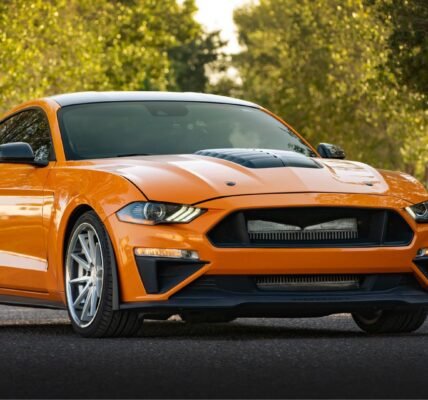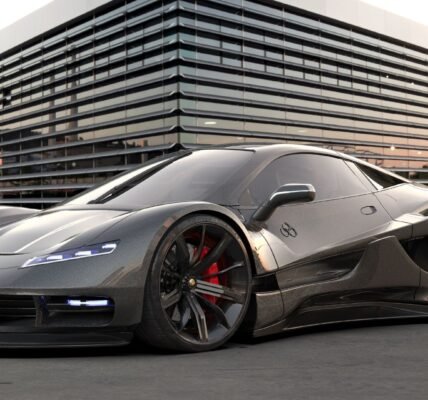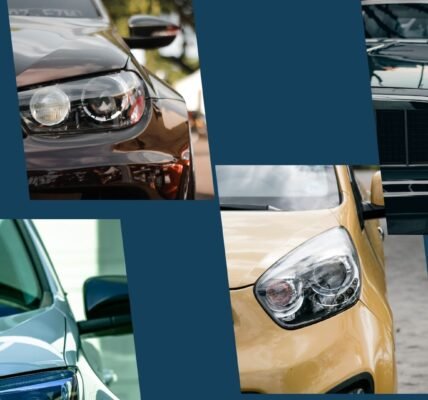The automobile industry is no longer just about horsepower and engine size. Today, the focus is shifting toward a new frontier: the digital transformation in modern cars. As technology evolves, vehicles are becoming smarter, more connected, and efficient. This shift is not just a trend but a revolution that will shape the future of driving. So, let’s explore how digital innovation is taking the driver’s seat in the auto industry.
The Rise of Smart Cars
The concept of smart cars is no longer a futuristic dream. It’s a reality. Automakers are integrating advanced tech into vehicles to improve safety, comfort, and efficiency. The digital transformation in modern cars involves smart sensors, real-time data processing, and cloud connectivity. These technologies are turning traditional cars into smart machines that can think, learn, and adapt.
For example, Tesla uses over-the-air software updates to enhance its vehicles’ features. This approach sets a new standard for how cars can evolve post-purchase.
Artificial Intelligence in Cars
Artificial Intelligence (AI) is one of the driving forces behind the digital transformation in modern cars. AI helps vehicles learn from data, predict user behavior, and make real-time decisions. For instance, AI-powered systems can recognize traffic signs, monitor blind spots, and even detect driver fatigue.
Moreover, AI in cars enhances navigation, parking assistance, and autonomous driving capabilities. Companies like Waymo and Cruise are using AI to push the boundaries of autonomous vehicles. This tech is not just improving convenience; it’s making our roads safer.
Connectivity: The Car as a Mobile Device
Today’s vehicles are no longer isolated machines. They are becoming part of the Internet of Things (IoT). The digital transformation in modern cars includes connectivity features like Wi-Fi, 5G, and cloud services. These allow cars to communicate with each other, infrastructure, and even smart homes.
For example, Ford’s SYNC system connects your smartphone to your car, allowing you to control music, navigation, and calls hands-free. This level of connectivity is paving the way for Vehicle-to-Everything (V2X) communication, where cars will talk to traffic lights, other vehicles, and even pedestrians.
Electric Vehicles: A New Era of Power
Electric vehicles (EVs) are not just about eco-friendliness. They are part of the digital transformation in modern cars. EVs come with software that optimizes battery performance, extends range, and improves charging efficiency. The shift from fossil fuels to electric power is more than a change in fuel type. It’s a change in how we perceive cars.
Brands like Tesla, Nissan, and Rivian are leading the charge in making EVs smarter. They use software updates to improve efficiency and add new features, transforming the vehicle over time. This shift shows that digital technology is not just an add-on but a core part of modern cars.
Advanced Driver Assistance Systems (ADAS)
The digital transformation in modern cars has led to the rise of Advanced Driver Assistance Systems (ADAS). These systems use cameras, radar, and sensors to monitor surroundings. They can automatically brake, steer, and accelerate based on road conditions. ADAS not only enhances driving comfort but also significantly boosts safety.
For example, Mercedes-Benz’s Distronic Plus system offers adaptive cruise control and lane-keeping assist. This tech is a step towards fully autonomous vehicles, making the dream of self-driving cars a reality.
In-Car Infotainment Systems
In-car infotainment systems have come a long way. Gone are the days when radios were the only source of in-car entertainment. The digital transformation in modern cars now includes touchscreen displays, voice control, and even augmented reality. These features are designed to keep drivers informed, entertained, and connected.
Apple’s CarPlay and Google’s Android Auto have become standard in many vehicles, offering seamless integration of your smartphone with your car’s infotainment system. This trend is pushing automakers to think of cars as digital platforms rather than just machines.
Cybersecurity: Protecting Connected Cars
With great connectivity comes great responsibility. The digital transformation in modern cars also raises cybersecurity concerns. Hackers can exploit vulnerabilities in car software, putting drivers at risk. Thus, automakers are investing heavily in cybersecurity measures to protect data and systems.
For instance, BMW and Toyota are using blockchain technology to secure car data and prevent unauthorized access. As cars become more connected, ensuring their security will become even more critical.
Autonomous Driving: The Future of Mobility
Autonomous driving is one of the most exciting aspects of the digital transformation in modern cars. Self-driving vehicles are no longer science fiction. They are being tested on roads today. Companies like Waymo, Tesla, and Uber are leading the race in autonomous technology.
These self-driving cars rely on a mix of AI, machine learning, and real-time data processing to navigate roads without human intervention. While fully autonomous cars are still a few years away from mainstream adoption, the progress so far is promising.
Sustainability and Digital Transformation
The push for digital transformation in modern cars is also driven by the need for sustainability. Automakers are using tech to reduce carbon footprints and promote green driving. Electric vehicles, hybrid models, and even hydrogen fuel cells are part of this green revolution.
Audi’s e-tron and Toyota’s Mirai are examples of how digital innovation is making cars cleaner and greener. These cars use digital tools to maximize efficiency and minimize emissions.
Conclusion
The digital transformation in modern cars is more than just a trend. It’s a revolution that’s changing how we drive, connect, and interact with our vehicles. From AI and connectivity to sustainability and cybersecurity, the auto industry is undergoing a massive shift. The focus is no longer just on horsepower but on smart technology that enhances the driving experience.
As we move forward, cars will become more than just a mode of transportation. They will become smart companions on the road, making our journeys safer, greener, and more connected. So, buckle up and get ready for a ride into the future driving.





